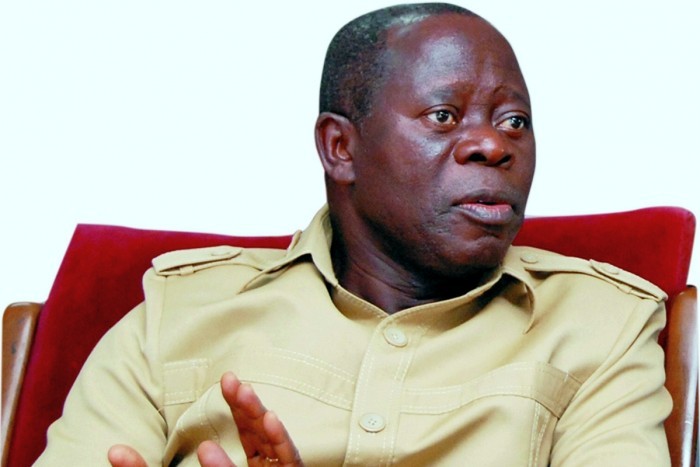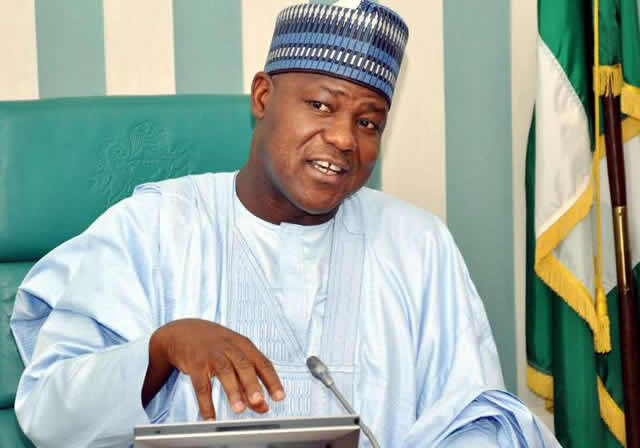
When Muhammadu Buhari was sworn-in as the elected President of Nigeria on May 29, 2015, he made what many considered a heart-lifting speech. The best part was the “I belong to everybody and I belong to nobody” sound bite. He later betrayed that pledge by going to America to propound his ungoldy “97%/5%” formula, which he has been implementing with a single-minded commitment.
He missed an opportunity to prove his critics wrong. If Buhari had implemented his “I belong to everybody and I belong to nobody” mantra, he would have been able to rally all Nigerians towards repairing an economy that had already lost so much weight as a result of the plummeting of crude oil prices.
He would have prevented the return of militancy in the Niger Delta, the surge of Biafra protesters to the streets and other security issues that have compounded our national cohesiveness and efforts to bring the economy back on sound footing.
I had expected President Buhari, after delivering that maiden speech, to again address the nation on the need for everyone to close ranks behind his government to rescue the economy. He should have unfolded a comprehensive inward-looking policy. With the election over, the task of rebuilding the economy was an assignment for all Nigerians irrespective of their political, religious, regional, gender, economic or social backgrounds. I expected him to tell the nation that the time for import dependency was over. Nigeria must now produce most of what she consumes and consume what she produced.
He would ban the litany of trashy goods we import and unfold measures to encourage the production of such goods locally to save the bulk of foreign exchange we waste on them. Rather, our President started travelling around the world and making lopsided appointments. Instead of Buhari, it was the Governor of the Central Bank of Nigeria, CBN, Godwin Emefiele, that seized the opportunity of the July 2015 Monetary Policy Committee, MPC, briefing to forewarn of an impending recession unless the Federal Government took appropriate fiscal policy measures.
He then published a list of 41 items the Bank would no longer prodvide foreign exchange for their import. From there, the CBN also embraced measures to bring Nigeria to self-sufficiency in rice production, with a pilot scheme in Kebbi.
The Bank’s Anchor Borrowers’ Programme, ABP, which provides funds to those involved in the production of key agricultural commodities, met unqualified success in Kebbi State. Fourteen other states around the country are now ear-marked for the next stage, and the Federal Government is now fully on board, thus following rather than “leading from the front”.
The prognosis is now quite good: Nigeria could be self-sufficient in rice production by this time next year if matters are followed up. And there are now plans to repeat the same policy in the areas of wheat, tomatoes and palm oil production.
The CBN’s early action to save Skye Bank from imminent collapse contrasts sharply with steps taken by his predecessors, Professor Charles Soludo and Mallam Sanusi Lamido. Soludo had slept on his job, allowing the successfully consolidated banks to rot in the area of corporate governance. Fake profits were being declared, while bank CEOs, directors and top managers were looting depositors’ funds. When Sanusi came, he tackled the matter like a bull in a china shop. Though he eventually saved the banking system from mass collapse, it cost the nation through the Assets Management Company of Nigeria, AMCON, trillions of Naira to repair the consequences of Sanusi’s rampage.
The timely and unobtrusive intervention in the Skye Bank affairs by Emefiele’s CBN nimbly solved its corporate governance problem without putting depositors funds – and the banking system at large – at risk. Unfortunately, it was this same Emefiele that some vested political interests had wanted to mob out of the CBN to pave the way for the “97 per centers”, who have been used to load up top government offices to the detriment of the hallowed Federal Character principle in our constitution. Fortunately though, some bright spots are beginning to appear besides the CBN in the effort to rescue the economy in the absence of a leading role by the Economic Team led by Vice President Yemi Osinbajo. Babatunde Fowler, the former Lagos State tax czar, appears to have taken his magic to the centre.
The Executive Chairman of the Federal Inland Revenue Service, FIRS, recently announced that the Federal Accounts Allocation Committee, FAAC, was able to share over N500 billion in June 2016, 70 per cent of which came from non-oil sources, particularly taxation. Perhaps it is too early to shout Hallelujah, but this development is worthy of note. Let us watch a little more to see if Fowler’s FIRS can maintain or even increase the momentum and free this nation from oil-dependency.
FIRS is joining the CBN at the rearguard, defending the economy. Are we going to depend on the isolated, individual ingenuity of a few officials to get out of the woods? How far can a few superstar performers take us? It is not too late for Buhari’s Economic Team to show their hands by defining the general policy direction of the economy. With President Buhari relentlessly making his divisive appointments, it is not going to be easy galvanising the generality of Nigerians behind the efforts to revive the economy, anyway.
Even if the Economic Team suddenly wakes up to its duties, very little progress can be achieved if militants continue to have reason to disrupt the oil industry. If the economy is going to mend in record time, only a leadership which enjoys the support of all well-meaning Nigerians can achieve it. CORRECTION. In my last Monday column entitled: “Questions For Ambassador Entwistle,” I mistakenly referred to the Minister of Foreign Affairs as Okechukwu Enelamah. Enelamah is the Minister of Industry, Trade and Investments, while the Minister of Foreign Affairs is Geoffrey Onyema. The error is sincerely regretted.
END




Be the first to comment